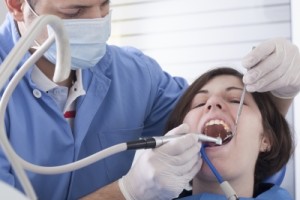 The extraction of a tooth is sometimes necessary when you are suffering from pain and discomfort in the mouth due to it being compromised. A rotting or decaying tooth is often the cause or underlying problem, and it should be removed in order to prevent further exposure of the nerve that lies beneath. Constant toothaches and sharp sensitivity in the general region could make it necessary to elect for the extraction of a damaged tooth. If you are going in for a tooth extraction in the near future, then please continue reading forward to learn more about the aftercare steps that should be taken into account while undergoing the healing process.
The extraction of a tooth is sometimes necessary when you are suffering from pain and discomfort in the mouth due to it being compromised. A rotting or decaying tooth is often the cause or underlying problem, and it should be removed in order to prevent further exposure of the nerve that lies beneath. Constant toothaches and sharp sensitivity in the general region could make it necessary to elect for the extraction of a damaged tooth. If you are going in for a tooth extraction in the near future, then please continue reading forward to learn more about the aftercare steps that should be taken into account while undergoing the healing process.
Brush with Care
Even if you will be wearing temporary teeth after the procedure, you still may need to remove them in order to allow for the brushing of your remaining natural teeth. Exercise extreme caution while doing so, as your mouth will be quite sensitive at this time. Avoid the area from which the tooth has been extracted from, until it has fully healed. Any contact of the toothbrush bristles with the raw nerve in that general region can cause extreme pain and tenderness, making it difficult to consume foods afterwards, or even speak properly.
Avoid Extreme Hot and Cold Temperature Foods
It is important to stay away from extremes of temperature in your mouth. Consuming food and beverages that are too hot or too cold can increase the sensitivity in the affected area. Try to aim for more warm or room temperature foods, but not foods that are too hot. You should also use water of room temperature to gargle, and rinse your mouth out with after brushing. This will provide more comfort to the region, preventing the nerve in the affected area from being too painful or overly sensitive.
Use Topical Gels
If you are experiencing too much pain, then it might be a good idea to contact your dentist and find out which steps you can take to help ease the discomfort. Typically, dentists recommend washing the mouth out with slightly warm water for about 2 to 3 minutes, or until the discomfort begins to subside. Over-the-counter lotions and topical gels are also a good option, and will probably be very useful right after an extraction. In case of too much pain, you can also ask for analgesics.
Temporarily Avoid Heavy Work and Hectic Activities
If you normally have a very busy lifestyle, then now is the time to take a break from strenuous work, or at least cut down some of your activities until you are fully healed again. Continue your essential activities with care, and avoid over-exertion. You should especially avoid heavy activities which might prevent your body from recuperating as quickly after an extraction. Keep your workload down to a minimum until your next follow up visit, or as recommended by your dentist.
If you would like more information about care after a dental extraction, or to schedule an appointment, please feel free to contact us today at: (435) 319-6121.
Leave a Reply